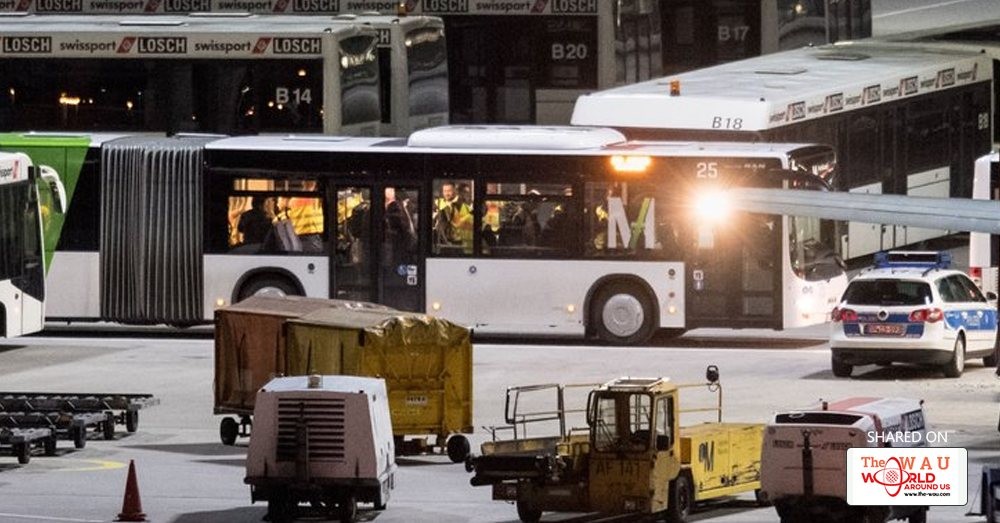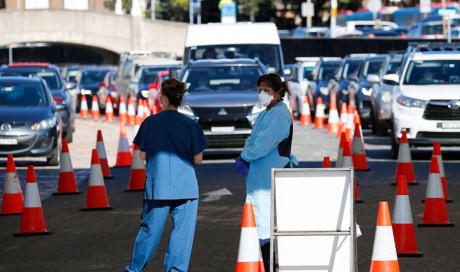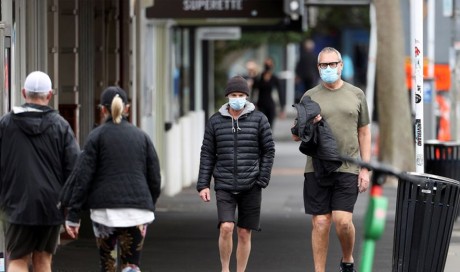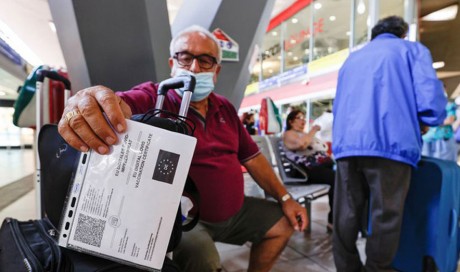Just hours after the German cabinet approved tapping cellphones and attaching electronic bracelets to illegal migrants who might be deemed a threat, a group of Afghan men were put on a plane at a Munich airport Wednesday night and deported.
The deportation was only the third such mass expulsion to Afghanistan since last fall, and in combination with new antiterrorism measures, it was a clear sign of the stiffening political headwinds that have made Europe, like America, a less welcoming place for migrants.
Across the Continent, Europeans find themselves increasingly caught up in a debate over the treatment of migrants as rising hostility to newcomers clashes with long-held values of tolerance and openness.
Many governments are restricting their welcome to strangers. Sweden tightened immigration rules last year. Britain is leaving the European Union in large part to stem the flow of foreigners. Italy has embarked on a plan to train Libyans to scoop up migrant boats off their shore. Hungary sees the shift against migration as affirming the “correctness” of its decision to build its own wall to seal its border.
Then there are some states, like Germany, that are taking more assertive steps to ensure that those who have been denied asylum actually leave, like the 18 Afghans deported Wednesday. That has not always been the case.
Chancellor Angela Merkel’s government, itself facing a tough election challenge this year, is taking steps to speed up deportations after some terrorism suspects were found to be immigrants who had been designated to be sent home.

“Nobody is sent back to their country of origin,” said the French nationalist Marine Le Pen, who has set herself up as an advocate for deportation as she enters the homestretch of France’s presidential race as a leading contender.
“Everybody stays. Everybody settles down,” she said last week on French television. “Seven million unemployed, nine million poor, our health system is saturated, and we continue to accept those who arrive.”
Figures from countries across Europe suggest that, while governments are scrambling to restrict arrivals, closing off migration routes as in the Balkans and defanging nationalist arguments, there is still a steady flow of arrivals.
The French government body that handles asylum requests, for example, reported 85,244 requests in 2016, up 6.5 percent from the previous year. Over 40 percent were granted.
At the same time, France’s highest administrative court ruled against a request from human rights groups to remove Albania, Armenia, Kosovo and Senegal from a list of safe countries to which unsuccessful asylum seekers may be deported.
The deportation debate has flared in Germany since December when Anis Amri, a young Tunisian asylum seeker, drove a truck into a Christmas market in Berlin, killing 12 people and injuring 50. He had been expelled from Italy, had registered under at least 14 aliases for welfare and other benefits, and had been listed as a terrorist threat who should be deported.
Yet he could not be deported because his native Tunisia failed to provide identity papers. After his attack, he fled first to western Germany, then to the Netherlands and finally to Italy before being killed in a shootout with the police.

Ms. Merkel, under pressure from both the right and the left as she seeks a fourth term in September elections, cited Mr. Amri’s attack as she pressed Germany’s 16 states — which are responsible for deportation — to stop “this considerable danger to life and limb.” She then pointedly urged the visiting Tunisian prime minister to redouble his country’s battle against terrorism.
Still, human rights groups like Amnesty International and Human Rights Watch, and a number of national and regional organizations, have accused Europe’s governments of being too harsh on migrants who they say are simply seeking a better life or striving to escape war and persecution.
When the French authorities broke up a settlement near Calais that had for years had hundreds of migrants, officials “failed to genuinely consult migrants or asylum seekers or provide them with adequate information prior to the eviction,” Amnesty International said. Many were minors trying to reach Britain, where, they said, they had relatives, the group added.
In Britain itself, the debate over deportation has been somewhat subsumed by the louder discussion over immigrants from Europe who helped spur Britain’s vote in June to leave the European Union. Controversy also envelops the question of how many people in Britain should be deported.
In Italy, Marco Minniti, a security expert, became interior minister in December and has pushed through long-awaited measures aimed at curbing immigration by processing asylum applications faster. Asylum requests totaled 123,000 last year — a steep rise from 26,000 in 2013, when Italy was seen more as a transit country for migrants heading north to Central Europe.
The new decree eliminates the right to appeal an asylum rejection, and adds staff to process requests faster — something Germany is also grappling with after Ms. Merkel threw open her country’s borders in fall 2015.
For migrants who are denied asylum or other forms of international protection, Italy will create “centers for repatriation” in all of its 20 regions. Similar centers were closed a few years ago after complaints about conditions, but the government now says these will be closely monitored.

Shortly after Mr. Amri was killed outside Milan, Italy’s police chief, Franco Gabrielli, ordered all police stations to check the status of migrants in their areas.
In Central and Eastern Europe, European Union countries have fiercely resisted taking in migrants, particularly Muslims, arguing that they are ill equipped culturally and economically to shelter many strangers.
In 2015, Hungary’s prime minister, Viktor Orban, was the first European Union leader to resist mass migration. He built a fence along his country’s borders with Serbia and Croatia to block refugees fleeing the war-afflicted Middle East via a Balkan route; that route largely shut down last spring after the union persuaded Turkey to stanch the flow, and governments along the way shut their borders for the most part.
But Mr. Orban apparently still sees political capital in taking a hard line on migration. He takes a broad view of what he sees as its inherent perils — and is one of the few leaders actively aligning with Mr. Trump. “We believe a change in perspective in the U.S. helped others to respect the Hungarian position,” Mr. Orban’s spokesman, Zoltan Kovacs, said in London this month.
Hungary’s defense minister, Istvan Simicsko, said, “The goals of the new government of the United States confirm the correctness of Hungarian security policy thinking.” He was referring to a speech made by Vice President Mike Pence at last weekend’s annual security conference in Munich.
“The U.S. and Hungary also have very similar views with regard to reinforcing NATO and the fight against radical Islamism,” Mr. Simicsko said.
New measures likely to be passed by Hungary next month foresee the closing of camps where migrants who have been rejected for asylum have effectively waited while planning new attempts to cross into Austria and beyond. Migrants would instead be held in much more restricted conditions, possibly in violation of European Union law and international conventions on refugees.
Amnesty International and the Hungarian government are locked in a war of words over the proposals.
“Rounding up all men, women and children seeking asylum and detaining them months on end in container camps is a new low in Hungary’s race to the bottom on asylum seekers and refugees,” Gauri van Gulik, Amnesty International’s deputy director for Europe, said in a statement.
Share This Post












